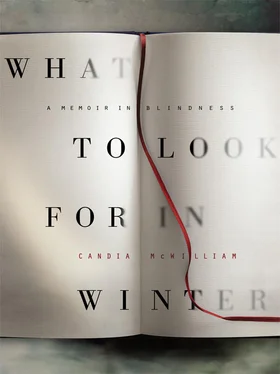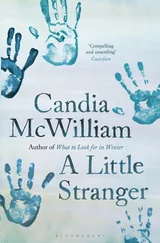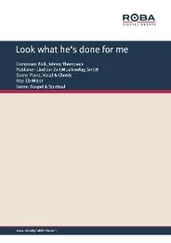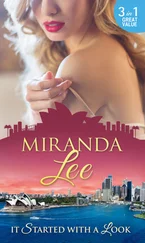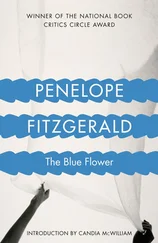I replied that I was but that as I understood it, it was complicated and the terms hadn’t been invented yet and that my husband lived with someone else whom I was fond of.
I thought that this was a good opportunity to start as I meant to go on, naming things as I awoke into this new post-operative world.
Poor young man. He probably wanted only to see if I was sufficiently unwoozy to recall elementary facts, like the name of the Prime Minister. He got an essay. I don’t even know how to fill in forms. I alternate between ‘Married’ and ‘Separated’. I think I want to put what our son wants me to put. I must ask him.
I asked the young man his own marital status. He had a wife, he said, from Edinburgh, actually, away at the moment with his brother’s wife, also from that city, also a nurse. You couldn’t keep those Edinburgh girls away from home, he said. At least he supposed they were going home because they were homesick and it was nothing worse.
He spoke with healthy confidence.
‘I’m getting so I miss the place too, actually,’ he said, and patted me in an encouraging way. ‘You should go there one time when your eyes are better. It’s gorgeous.’
Later in that day with my stitched eyes behind their blinkers, there was another conversation that pushed plausibility to its limits.
As far as I could tell, it was evening. A woman’s voice, South African, almost social in its willingness to interact, reached me, enquiring about various practical matters. I replied.
I had had supper, insofar as I wanted it. I had found the toilet. Yes, I was used to finding my way by feel around the place, it was one of the upsides of not having been able to see that much before. Might I have a sleeping pill?
I might indeed not have a sleeping pill. I had just had a general anaesthetic. Did I know the inadvisability of risking it?
Silly me. I’m sorry.
Do you usually have sleeping pills? Are you aware of the dangers of dependency on prescription drugs?
Yup, I bullyingly said from inside my bandages, I’m a twelve-stepped alcoholic committed to rooting out addiction wherever I encounter it day and night.
How many years’ sobriety?
Oh God, she had the lingo. Medical people on the whole absolutely do not speak AA talk, unless they are ‘in the Fellowship’.
Oh, what had I done? Were we going to swap drunkalogues, as they are chattily known, deep into the hospital night?
But it didn’t go that way.
I said, modestly, or rudely, ‘A few’, which is a sort of signal to be released that only the sensitive take in. It means, ‘I haven’t had a drink for quite a long time. Years, probably nearer ten than five.’
It is a way of not making newly sober people, who may have achieved those first, literally miraculous, few un-drunk days, feel small. It is a way of not bullying.
Her next question quite baffled me. ‘Are you privatised?’ she asked.
I thought I could hear earrings. So, not a nurse, if allowed to wear tinkly jewellery at work.
‘I’m paying for this procedure. Do you mean that?’
‘No’, she replied, ‘I meant, are you married?’
I had never heard the expression.
I told her what I had told the nice young man with the wife from Edinburgh. Life was offering me exactly what was required, an opportunity to be plain and clear about what remained obscure — at any rate in words — to me.
‘Well, if you were a writer, you could write about it,’ she said.
I couldn’t engage with that. I was barely sure any more that I was anything, let alone a writer. I did the interviewee trick, and turned the tables.
‘Are you privatised?’ I asked. I wish now that I’d asked her where this odd term comes from. Can it make the husband feel nice, this microeconomic form of expression?
‘I,’ she announced, ‘am very happily privatised.’
She too has a terrific name. I will call her Theophania Droptangler.
The spirit of the woman, whose bright clothes I could hear and whose warmth was toasting me merrily through the anaesthetic and bandages and darkness, suggested there might be something well worth chasing on to the page. The next morning she was the first to come to me, at the sort of time my cat might have begun the day.
She was more than a chatty woman used to talking to zombies. In the intervals of her night watch, she had done a lot of background research.
‘So you weren’t bullshitting,’ she said. ‘You had it right you’re a writer.’
I said, ‘What?’
‘I found you. It was that unusual first name. We’re sitting ducks for stalkers, darling. And I’ve decided you can have seven sleepers to take away because I trust you.’
Useful being called Candia if it procures you sleep medication and binds you to other people with funny names.
I asked the nurses what this earring-loud lady looked like. I wanted to see if it matched my picture. She had told me her age, which was more than sixty. They confirmed all of it, sunshine colours usually reds, pinks, turquoise, lovely dark skin they said, henna through her hair, tiny like a bird, lots of kids, must be around fifty, looks about forty, and earrings like you would not find in a shop. Earrings in the shape of things, parrots on perches, ice creams in soda glasses with two straws, cactuses.
‘She’s exotic. Not like a doctor, more like a writer.’
The next stretch of time was like no other in my life. The closest I have come to it is V.S. Naipaul’s Enigma of Arrival , a book I have loved more on each rereading.
As I recall the book, it is an account of the writer’s time at a small house on an estate that had belonged to the Tennants, part of the set that included Ettie Desborough and the family who had lived at Clouds House, known to me for its architecture, its inhabitants the Souls, and its efficacy at drying me out. The estate was in fact Wilsford, to whose melancholy sale of contents Fram and I had been just after the death of its owner, Stephen Tennant, the lover of Siegfried Sassoon and later recluse, who dwelt alone indoors making bulgy drawings of matelots in many colours of biro, seldom leaving his bed and wearing powder and lipstick, in rooms upon which were drawn white satin curtains full of dust and in which vases of white ostrich plumes fussed up into the heavy air. Those impressions were gained from the sale and the house’s interior, the sad boxes of stuff that were having a harsh time of it in daylight, props as they were for a life of delectable tackiness and gimcrack fun, all, no doubt, in revolt against the stout Lowland virtues of solidity, bleach and no jokes, against which Tennants, beneficiaries of a chemical fortune, have for the last few generations so incandescently, sometimes chemically, rebelled.
The Enigma of Arrival , as I remember it, a recall of reading through blindness and forgetting, which seems in itself the sort of distancing such a monument to passing might rather enjoy having inspired, grows like moss upon the rapt reader, who perfectly enters its mood and is made part of it as he proceeds. Naipaul conveys the oldness of the landscape and the paths worn upon it, the ingrownness of the community and the dreams that make us who we are and what we might have hoped to have been. It is about hope and disappointment, dreams and death, and how worlds meet. It shows the absorptive power of the famously self-defining Naipaul. It is a great book. I can envisage its being read for many years beyond the time of our grandchildren because it is apparently clear yet it takes you into itself and shows you things there in the dimness for which you did not have words. It offers an England that isn’t ‘literary’. It’s geographical and spiritual. With words, it goes beyond words. Just as the artist is rare who can write drunkenness, the artist is rare who can describe our pre-verbal sensations and thoughts.
Читать дальше
